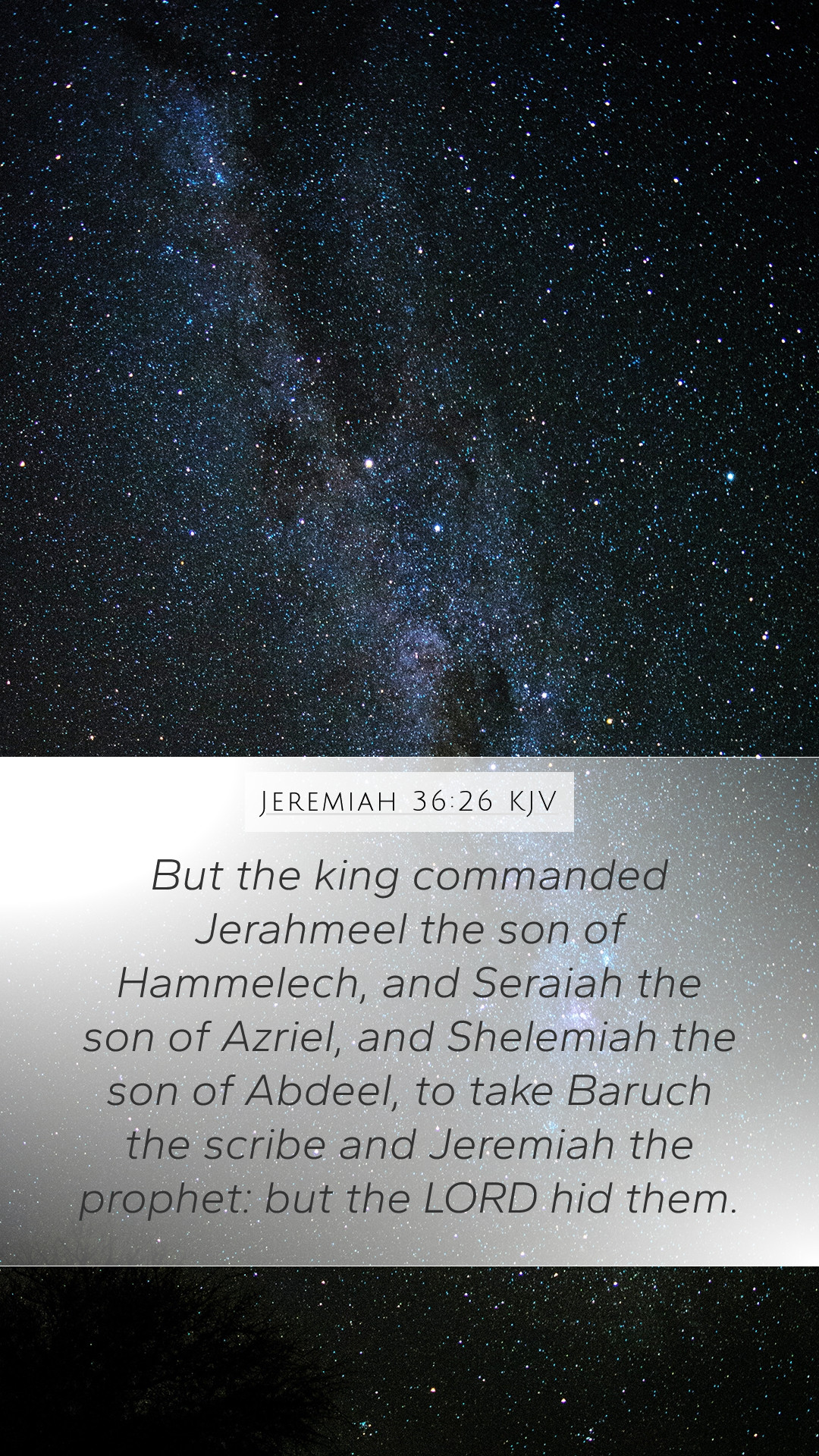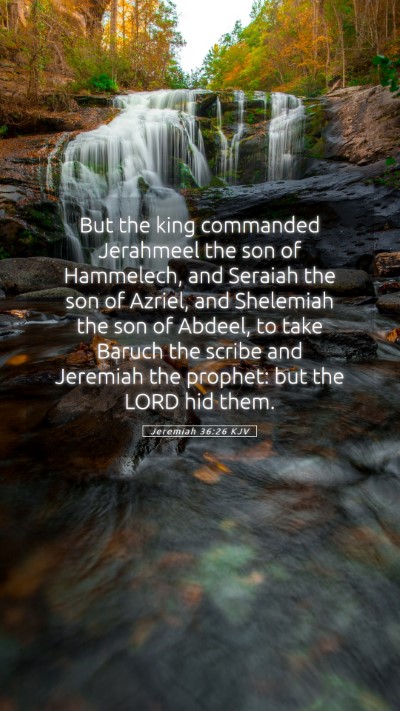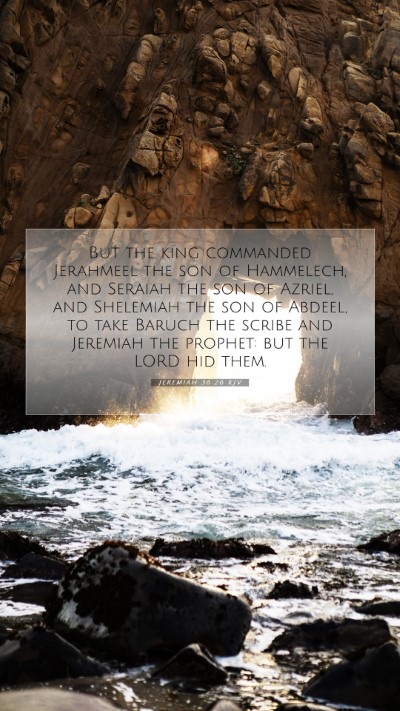Understanding Jeremiah 36:26
This study aims to provide a comprehensive Bible verse commentary on Jeremiah 36:26, incorporating insights from respected public domain commentaries such as those by Matthew Henry, Albert Barnes, and Adam Clarke. The goal is to enhance your Bible study insights and deepen your Bible verse understanding.
Verse Overview
Jeremiah 36:26 states:
“But the king commanded Jerahmeel the son of Hammelech, and Seraiah the son of Azriel, and Shelemiah the son of Abdeel, to take Baruch the scribe and Jeremiah the prophet; but the Lord hid them.”
Bible Verse Meaning
- God’s Protection: The essence of this verse underscores God's protection over His messengers. Despite the king’s intention to capture these individuals, God intervened to safeguard them.
- The Sovereignty of God: This passage is a powerful reminder of God's sovereignty. Even against human opposition, God’s plans prevail. He controls every situation, sometimes in ways that are unseen.
- Importance of Prophecy: The mention of Jeremiah and Baruch signifies the critical role of prophetic voices in Israel's history. Their messages were to call the nation to repentance and to warn of impending judgment.
Detailed Commentary
Matthew Henry notes that this verse highlights a direct response to the authority of God as opposed to that of human rulers. It illustrates that despite the plots and schemes of men, God’s plans will not be thwarted. The preservation of Jeremiah and Baruch shows that faithfulness to God’s call is rewarded with divine protection.
Albert Barnes elaborates on the historical context, explaining the tension between the ruling authorities and God’s appointed prophets. He suggests that this verse serves as a warning to those who oppose divine authority, indicating that their actions can never overcome God's will.
Adam Clarke adds insight into the implications of this protection. He emphasizes the spiritual significance of the hidden state of Jeremiah and Baruch, which symbolizes how God not only protects His prophets but also shields His truth from being suppressed by human leaders.
Cross-References
- Jeremiah 1:19: “And they shall fight against thee; but they shall not prevail against thee; for I am with thee, saith the Lord, to deliver thee.”
- Acts 5:39: “But if it be of God, ye cannot overthrow it; lest haply ye be found even to fight against God.”
- Isaiah 54:17: “No weapon that is formed against thee shall prosper; and every tongue that shall rise against thee in judgment thou shalt condemn.”
Applications for Study Groups
This verse provides a wealth of material for Bible study groups. Here are some ways to engage:
- Discussion Topics: Explore the nature of divine protection in believers' lives.
- Study Plans: Devote a session to the prophetic role in the Old Testament and how God sustains His messengers.
- Life Application: Encourage group members to share experiences where they felt protected by God in difficult situations.
Concluding Thoughts
Jeremiah 36:26 serves as a poignant example of God’s protection and sovereignty. Understanding the significance of this Bible verse enriches our Bible verse interpretations and empowers our faith. Whether in personal devotion or communal study, let this verse inspire confidence in God’s divine oversight.
Further Reading
For an in-depth Bible verse analysis, consider other associated passages and the history behind Jeremiah's prophetic ministry. Analyzing chapters leading up to this verse can provide further clarity on the political and spiritual climate of Israel at that time.


